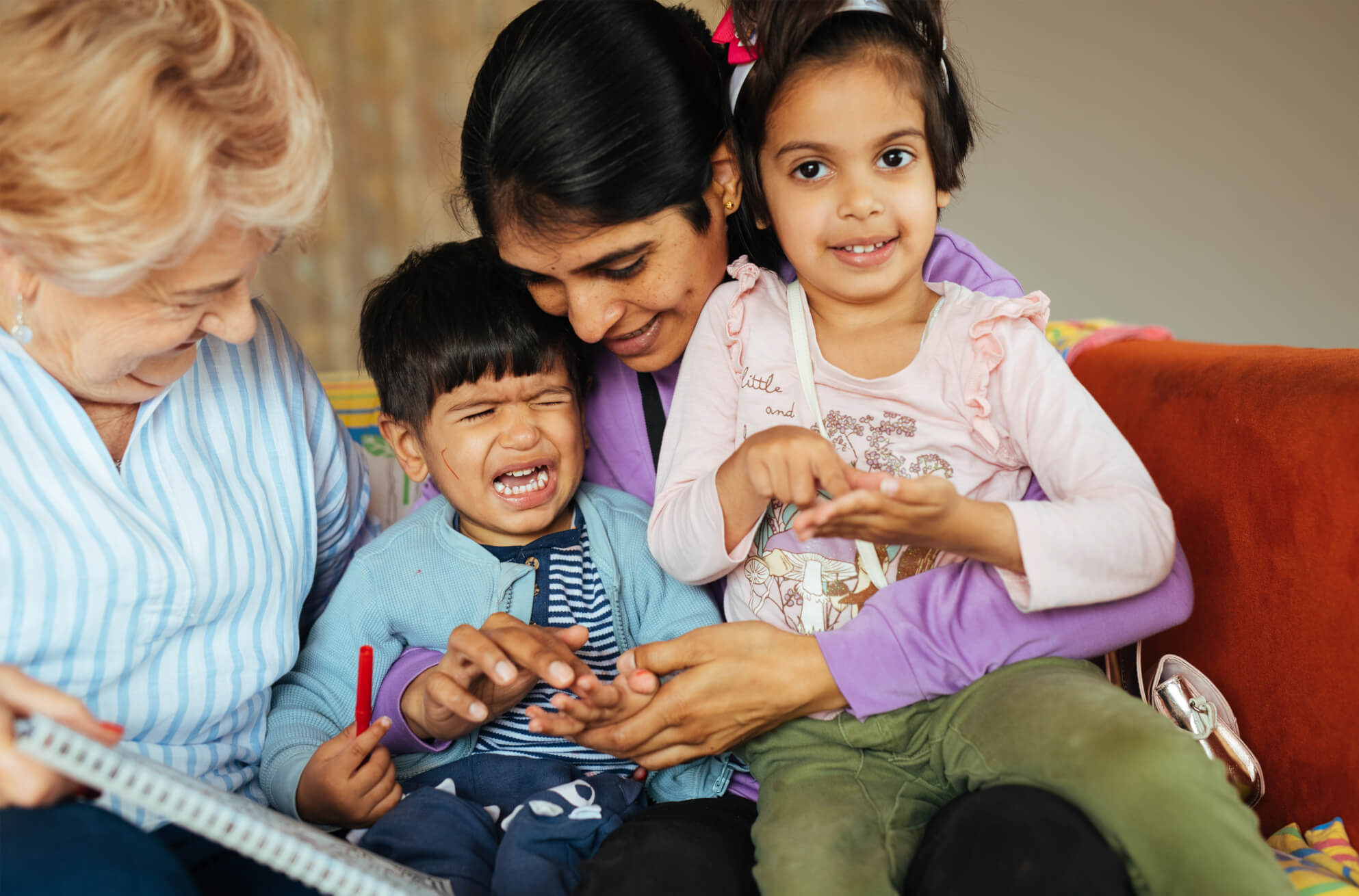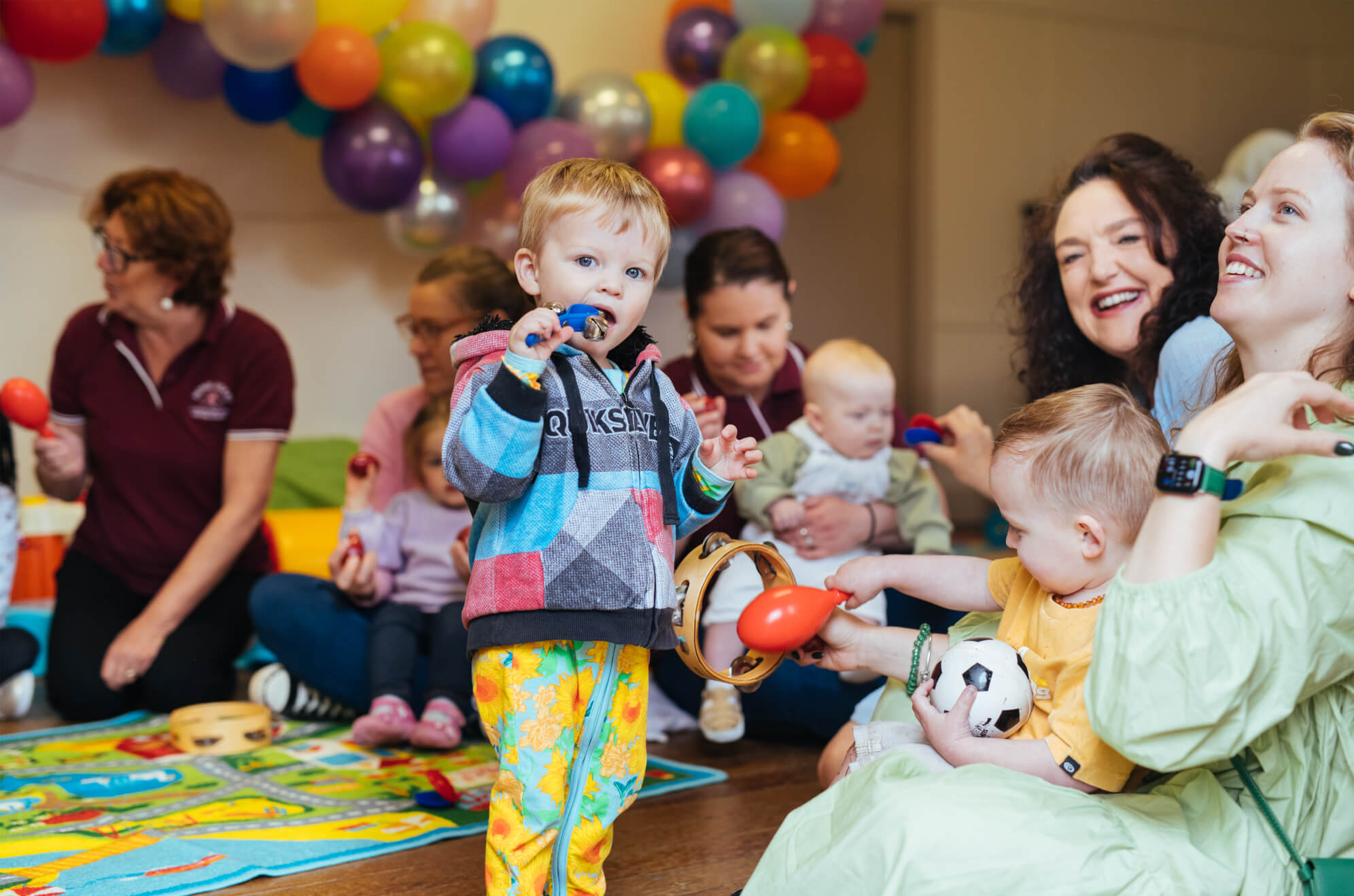About
For parents who are finding it difficult to cope, we provide free professional & volunteer support in their homes and communities. Our focus is on families with children under 8 years.
Home-Start Family Services is a non-profit, non-government organisation dedicated to helping children and families thrive by providing practical parenting support, evidence-based training and genuine connection.
Home-Start has been working with families and children in Australia since 1989.
Our Story
Home-Start was founded by Margaret Harrison in the United Kingdom in 1973.
Margaret believed that a family was best supported in their own home where help could be tailored to their needs. Margaret understood that when parents get support and friendship from another parent, they’re better equipped to cope with the daily parenting difficulties and can give their children the best possible start in life.
This philosophy remains at the heart of what we do. More than 48 years later, Home-Start schemes exist in 22 countries across the world.
Home-Start was launched in Australia from the University of Newcastle in 1989 and began with a Volunteer Home Visiting Program. Since then, we have expanded our services and program offerings and created fresh ways to meet the needs of parents and families.
Our national office is based in Newcastle, NSW and we employ staff in locations throughout NSW. Home-Start National Incorporated is the parent body that serves all Home-Start Family Services.
Home-Start has been recognised as a model of best practice and is developing throughout Australia. In recent years State and Federal governments have acknowledged the benefit of Home-Start as a preventative program that supports families in the early years of child rearing.


Home-Start Family Services operate local, community based programs throughout rural and remote towns across NSW & Victoria. Every family has different needs, so the support they receive is tailored to their unique situation. Home-Start programs (and workers) are embedded in the communities they service.

Home-Start National Inc. is the parent body of Home-Start Family Services. We are concerned for the welfare of children and parents, and we’re committed to establishing and supporting Home-Start schemes throughout Australia. Practically, we:
• Establish, train & support Home-Start Programs around Australia
• Support and/or manage programs in regional, rural & remote towns in NSW & Victoria
• Seek funding to establish new programs as requested by communities and other organisations, and to support existing programs
• Employ 9 paid staff and helps to support over 250 community volunteers around NSW and Victoria.
Do you or someone you support need help?
What we do
We provide free professional and volunteer support to vulnerable families in their homes and communities.
How we help
• Encourage parents’ strengths
• Form healthy, authentic relationships
• Build emotional wellbeing & confidence
• Establish strong connections to wider community resources
• Build trust, cooperation & communication
• Treat families with dignity & respect
Our impact
When families get Home-Start support, the difference in their lives is measurable. With the benefit of practical advice, good role modelling, parenting education, information and strategies and real community connections, families start to thrive.
Outcomes for our families include:
• Improved mental health
• Reduced isolation & depression
• Improved child health, development & wellbeing
• Reduced domestic violence
• Reduced child abuse
• Increased community connections
• Increased opportunities for friendship

Parents are their child’s first and most important caregivers and teachers.
“Efforts should focus on the first years for the greatest efficiency and effectiveness. The best investment is in quality early childhood development from birth to five for disadvantaged children and their families.”
James J. Heckman
Our work has a proven, lasting and positive impact on the development of children and the health and welfare of families.
Early intervention is the answer
Evidence shows that a nurturing, loving and stable family and home environment strongly influences a child’s future life chances.
The vision for the NSW Government’s Targeted Earlier Intervention Program is:
• That children, young people and family’s needs are met early to prevent the escalation of difficulties and vulnerabilities
• Families can access support early in the lives of their children
• Risk factors that can lead to serious child or family issues are addressed early
• Aboriginal children, young people, families and communities have access to timely, effective, accessible and culturally safe support and services
We Make a Difference
Home-Start is an evidence-based practice. Our work has a proven, lasting and positive impact on the development of children and the health and welfare of families.
The research evidence has demonstrated repeatedly that the Home-Start approach, while cost-effective, has a positive impact on families and children with parents confirming that their lives have been changed by Home-Start. Research has also shown that Home-Start has a positive effect on the lives of volunteers.
In 2014 Home-Start received an evidence-based Best Practice commendation from the EU-European Platform for Investing in Children (EPIC) for the ‘’effectiveness, transferability and enduring impact’’ of its work.
Examples of Key Research
The Home-Start impact on families (parents and children)
In the Netherlands, the impact of Home-Start on families was for many years the focus of research by Professor Jo Hermanns of the University of Amsterdam and his team. Over the years they published a number of peer reviewed papers and on their research studies. Of particular interest are two studies on the long-term impact of Home-Start. The first one published in 2013 looked at the impact of Home-Start on parental characteristics, parental behaviour and child behaviour at three and a half years after the Home-Start support while the second one published in 2015 looked at the impact 10 years after the Home-Start support.
The 2013 results demonstrated that, compared to two control groups, the Home-Start group showed more improvements in parenting (more responsiveness), and also diminished child behaviour problems (less oppositional defiant behaviour, affective problems and anxiety).
The 2015 results showed that the changes made during the Home-Start intervention were sustained at 10 years after the intervention. Thus, Parents were able to apply skills acquired during the Home-Start intervention to later stages in their children’s development.
This confirms the theory of change on which Home-Start intervention is based: support for parents at early childhood improves parental skills and behaviour which then has a long term positive impact on children’s outcomes.
The Home-Start impact on volunteers
Over a two year period Home-Start UK collected and recorded the information of 108 volunteers working across London, from the start of their training through to their supervised work with families.
The results showed that:
• Volunteering as a home visiting family support volunteer has a positive impact for volunteers as well as for the direct beneficiaries – the families.
• There was improvement in the volunteers’ personal development; skills development; health and well being; inclusion in social networks and local communities; and their engagement with the labour market
• While the main motivational driver was altruistic, it is also important to acknowledge volunteering as a route into work
• Volunteers significantly improved their work ready skills
• Volunteers’ personal experiences were highly relevant for a family support volunteering role.
‘The Impact of Volunteerism on Volunteers’ Joyce Kenkre, Elizabeth Young. Leicester, Home-Start UK
Further links to research and reports
Strong families make strong communities- Home-Start’s social impact report
Big hopes big future: Evaluation Report – England pilot study
The impact of volunteering on volunteers
Building resilience: volunteer support for families with complex circumstances and needs
Long-term changes in parenting and child behavior after the Home-Start family support program